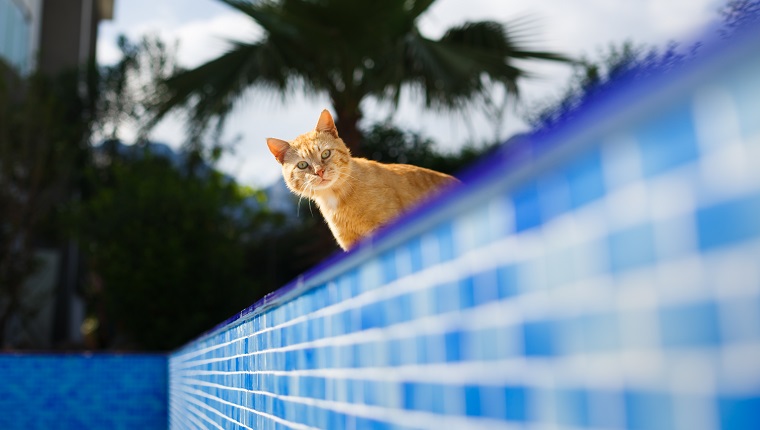Summer is here, and that means fun in the sun for us and our four-legged family members. While long days spent frolicking outdoors create priceless memories, they can also pose hidden dangers to your pet. By following these simple summer safety tips for cats, you can ensure your kitty enjoys summer.
Summer is a great time of year for people and pets. The…
Summer Safety Tips For Cat Parents
-
Keep Your Cat Hydrated
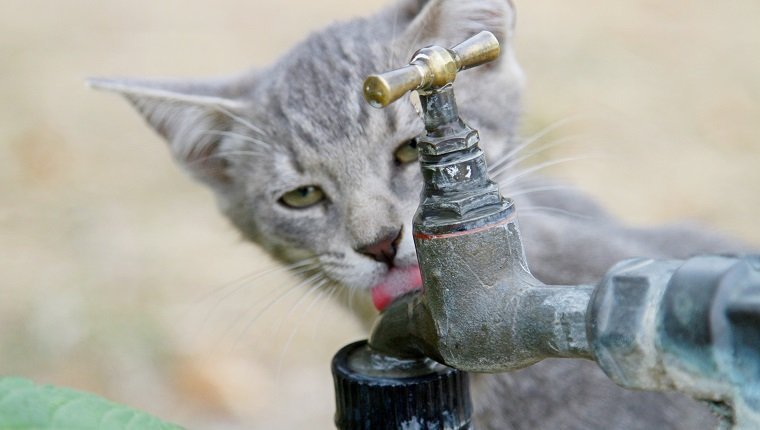
(Picture Credit: ands456/Getty images)
Cats who roam or spend time outdoors in the heat need to drink plenty of water.
A cat who becomes five percent dehydrated will develop early signs of heat stress, while a cat who experiences ten percent dehydration will become severely ill.
To avoid dehydration, always have fresh bowls of water around the house and yard if your cat goes outside. There are many styles of portable bowls that are convenient to carry if you travel with your cat or take your cat places.
Under normal circumstances, most cats swill consume about an ounce of water per pound of body weight per day. In hot and humid conditions, your cat may need three to four times this amount.
Cats get a lot of moisture from their food, too, so be sure they get fresh, wet food in the summer months.
-
Cats Can Get Sunburned, So Protect Them

(Picture Credit: Hero Images/Getty Images)
Cats are susceptible to the same damage from ultraviolet rays that humans are. This is especially true with white or light-colored cats and areas of the body that are thinly haired, such as the nose, face, and ears.
The eyes and nose of cats are highly susceptible to damage from the sun's rays because they are typically lightly pigmented and frequently exposed to direct sunlight.
I recommend using a children's sunscreen that contains avobenzone -- also called Parsol 1789 -- which is a UVA blocker, and octisalate, which blocks UVB rays.
Avoid sunscreens that contain zinc oxide because accidental ingestion could lead to a serious condition called hemolytic anemia in some pets.
-
Chill Out When It Gets Too Hot

(Picture Credit: YuriF/Getty Images)
On hot days, it's best to keep your kitty inside where the temperature is regulated.
Even a cat who is allowed to roam could get trapped in a shed or under a house where the heat is magnified and more intense. Being trapped without water can kill a cat on a hot day.
Best to just stay inside where it's nice, cool, and safe, and there's plenty of drinking water.
-
Keep Water Safety In Mind
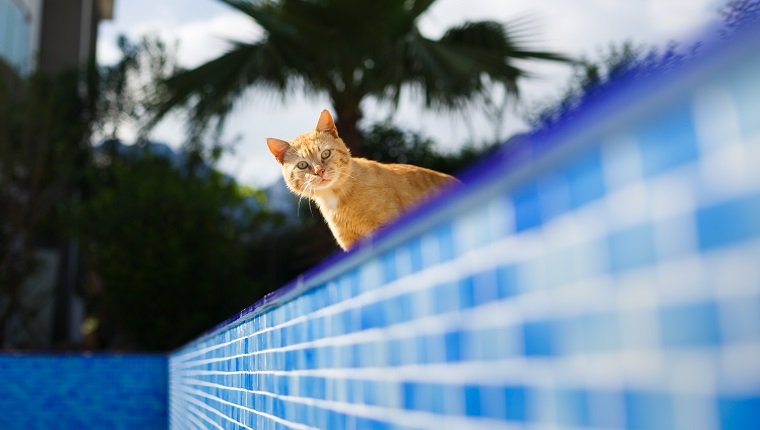
(Picture Credit: castenoid/Getty Images)
If you have a swimming pool, your cat may be drawn over to have a sip of water. This presents multiple hazards.
Your cat could fall into the water and drown or drink so much pool water that they get some GI distress.
If your cat goes out and does drink from your pool, then it's best to get a pool alarm that will alert you if anyone or anything falls into your pool.
-
Be Mindful Of Thunderstorms & Fireworks
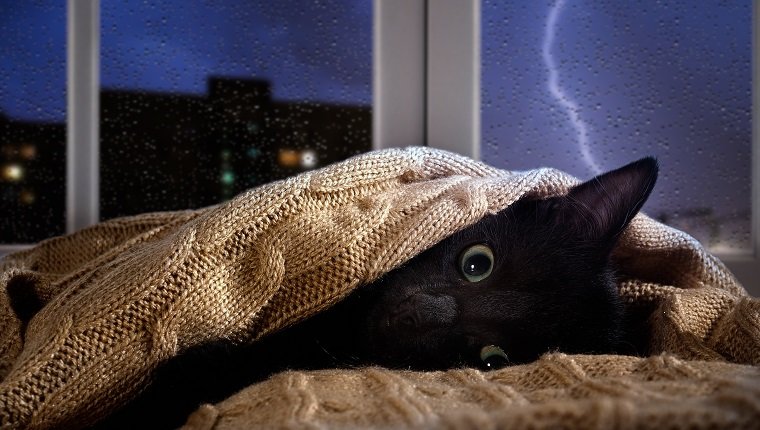
(Picture Credit: kozorog/Getty Images)
Summertime, depending on where you live, also means afternoon thunderstorms and holiday fireworks. Many pets are frightened by loud noises, and these events trigger severe anxiety and stress.
If your pet becomes destructive or behaves abnormally in response to loud noises, there is help. In addition to great pharmacologic treatments to help relax your pet during these stressful times, there are non-prescription remedies that may help.
Gradual desensitization using storm recordings work remarkably well for most pets.
Rescue Remedy, valerian, melatonin, dog-appeasing pheromone (DAP), and other natural products may also help some cats.
Talk with your veterinarian about how to calm your kitty if he or she is especially frightened during storms. There's no reason anyone should have to cower in a closet or destroy the furniture from fear.
-
Protect From Heartworms, Fleas, & Ticks
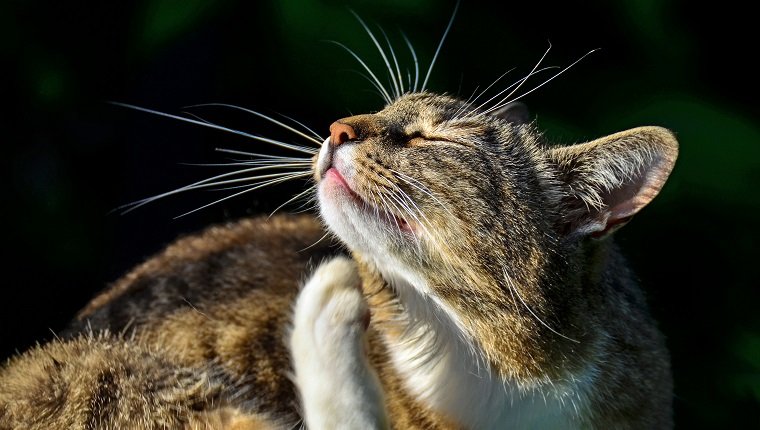
(Picture Credit: Sitikka/Getty Images)
Finally, warm weather brings out the pests. Every cat should be protected.
Depending on where you live, you may need heartworm prevention year-round. Heartworm disease is fatal if untreated in dogs, and there is no treatment for cats.
In addition to heartworm preventive, most pets require a flea preventive, especially during warmer months. There are several choices, including newer, more eco-friendly options. Many newer heartworm preventives also contain a flea preventive.
Talk with your veterinarian about the safest and most effective flea preventive for your pet.
Cats who live in wooded areas often are exposed to disease-carrying ticks. Many flea preventives will also protect against ticks. One mosquito, flea, or tick bite is too many for any pet. Don't risk your pet's health -- and your money -- by allowing your pet to be at risk.
Today's preventives are highly efficacious and extremely safe.
